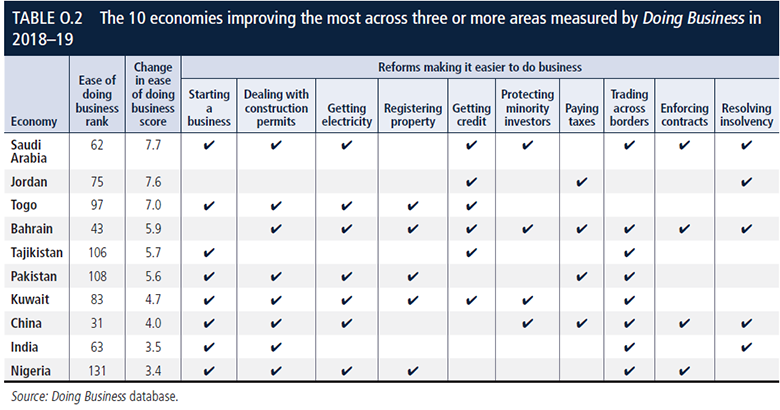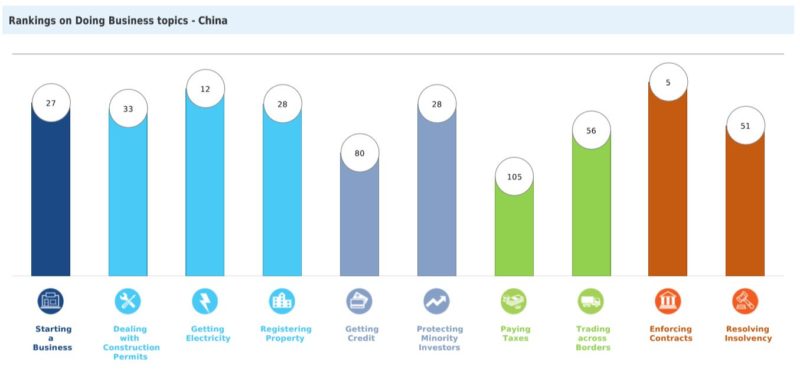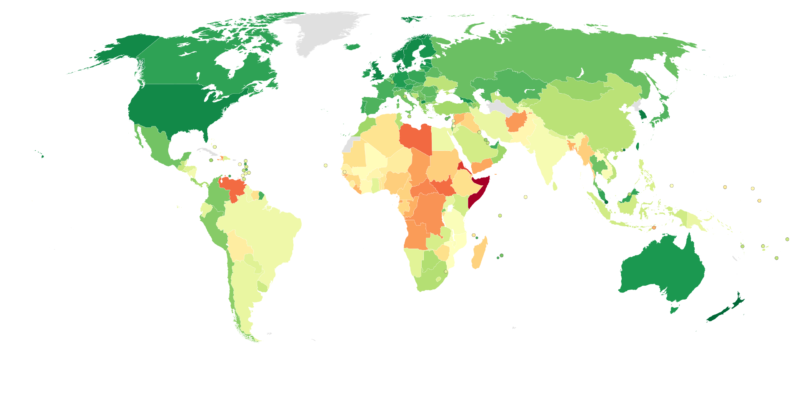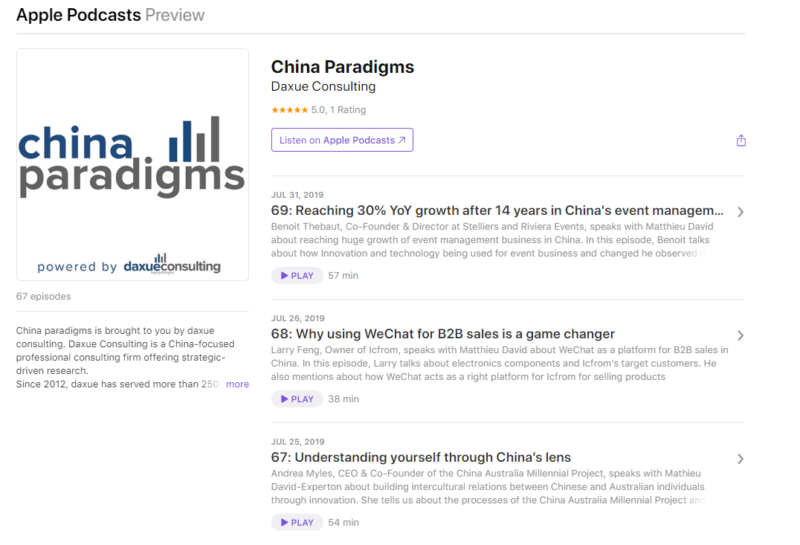This October, the World Bank released its annual ‘ease of doing business’ report. This year, the report is called “Doing Business 2020.” It showcases the progress that countries have made to improve their business climates during the last year. Perhaps as a surprise to many, the ease of doing business in China has improved at a quicker rate than most developed countries and some developing countries. This is a huge feat considering current issues in trade and politics.
Doing business in China has become easier in the last year mostly due to eight business reforms carried out by the central government. These Chinese business reforms can be broken down into a few categories, notably getting permits, taxation and access to utilities. Reforms implemented this year are part of a larger series of reforms that the central government has implemented over the past decade to improve the ease of doing business in China, which scored dismally low as recently as 2006, when the country was ranked 91st. Now however, Chinese business reforms have catapulted the country to the 31st spot on the list.
This improved ease of doing business in China as laid out in “Doing Business 2020”, an official report by the World Bank, is good news for foreign businesses. With a reputable organization behind it, the report illustrates how easy it is to do business nation by nation, while providing an explanation of how national governments have improved or worsened over time.

[The ease of doing business in China is the highest among the top ten improved economies ranked in the Ease of Doing Business Report and now ranks 31st in the world, no easy achievement for an economy that ranked 91st as recently as 2006.]
How the implementation of Chinese business reforms increased the ease of doing business in China in the past year
Construction permits are now easier to obtain
One improvement increasing the ease of doing business in China is in the process of obtaining construction permits. According to the report, it now takes 111 days to obtain construction permits in China, as compared to 132 days in the East Asia and Pacific region. The increased ease of obtaining construction permits in China during the past year has carried large weight in the overall improvement on this year’s ease of doing business report.
A new one-stop shop for business registration
Another notable area of Chinese business reforms is the advent of a one-stop shop for business registration for issuing company seals. This policy aids in the overall flow of registration and makes it quicker and more efficient for companies to carry out registration procedures.
Utility connection in China is twice as fast as the regional average
When it comes to utilities, certain Chinese business reforms reduce the time it takes to connect water and drainage connections, mostly in conjunction with low-risk construction projects. Chinese business reforms have also made progress in streamlining the process of obtaining electricity and have worked to make electricity prices more transparent. These improvements have made doing business in China easier, as it now only takes an average of 32 days to get electricity in China, as compared to 63 for the regional average. According to this year’s ease of doing business report, China ranks 12th in world when it comes to obtaining electricity.

[Visual showing where the ease of doing business in China is most improved and where it needs more work. Worth noting in the visual is China’s high rating when it comes to enforcing contracts and getting electricity. Source: World Bank]
Preferential tax treatment for small enterprises
China implemented tax policies this year that also helped the country move up the rankings. Chinese business reforms implemented in 2019 related to tax include a preferential tax treatment for small enterprises and another aimed at decreasing the value-added tax in certain industries.
Strengthened protection of minority investors
Another Chinese business reform is a policy that aims to strengthen the protection of minority investors. The policy aims to do this by transferring liability to controlled shareholders. In addition, it aims to clarify ownership and control structure within this sector. The report highlights how Chinese business reforms in this category raised China to the 28th highest ranking for minority investor mechanisms. This is in stark comparison to an average of 99th in Asia and Pacific region and 48th for OECD countries.
Optimization of customs administration ease trade in China
China also moved up the rankings in the category of trading. Policies aimed at simplifying the process of exporting and importing was able to help in this regard. Also helpful was the optimization of customs administration and the publication of fee schedules. Improved to port infrastructure also helped in increasing the ease of trading with China.
China ranks first in judicial administration
Finally, Chinese business reforms aimed at contract enforcement helped move the country ahead in rankings. Policies were able to do this by “regulating the maximum number of adjournments that can be granted and limiting adjournments to unforeseen and exceptional circumstances,” according to the report. These reforms now help China rank as one of the most efficient countries in regards to contract enforcement and judicial administration. According to the report, no other country scores as high as China when it comes to judicial administration.
What a high ease of doing business means for China
The eight Chinese business reforms that the government has worked hard to implement during 2019 have had a large impact on investment and business in the country. Chinese business reforms from previous years have already shown tangible results.
A study by Santander found that between 2016 and 2018, foreign direct investment in China increased from USD 133 billion to USD 139 billion. During the same period, foreign direct investment stock in China increased from USD 1.35 trillion to USD 1.63 trillion. The report also shows that the number of greenfield investments rose from 798 in 2016 to 871 in 2018.
During the first three quarters of this year, foreign direct investment in China rose by 6.5% in yuan terms. The main sources of investment were Hong Kong, Macau, Singapore, South Korea and Japan. A report from 2018 shows that during 2018, investment from Germany increased by about 80%, while that from the US increased by about 8%. The steady increase of investment into China reflected in these statistic shows the effect of these business reforms on the ease of doing business in China.

[Map showing the ease of doing business report’s statistics for 2017. At the time, the ease of doing business China was ranked 78th, but has since moved to 31st, among the highest in the world. Source – Wikimedia Commons ]
What the increased ease in doing business in China means for foreign companies
According to Martin Raiser, the World Bank Country Director for China, “China has undertaken substantial efforts to improve the domestic business climate for small and medium-size enterprises, maintaining an active pace of reforms.” This active pace of reforms has greatly helped to improve the ease of doing business in China during the past few years, especially this year.
Companies looking to expand into China can be comforted by the report. Chinese business reforms in key areas such as taxing, permits, utilities and trade have not only helped the country move up the rankings, but have also helped the companies have an easier time doing business there.
Despite the improvements laid out in this year’s ease of doing business report, there are still areas that foreign companies will encounter issues. China still has work to do in regards to tax compliance, getting credit and cross-border trade, as it still ranks 105th, 80th and 56th in these categories, respectively. According to the report, companies in China must spend an average of 138 days annually when complying with fiscal requirements, which is more than double the amount of time it takes in Singapore.

[View over Taikoo Li Center in central Chengdu. Opened in 2015 and now containing more than 300 tenants, many of which are foreign companies. The shopping center and its foreign occupants epitomize the ease of doing business in China. Source – 睿睿]
Let China Paradigm have a positive impact on your business!
Listen to China Paradigm on iTunes






